Editorials
– Shargh Newspaper “Moving from minor to major corruption in Iran.”
– Afarinsh Newspaper analyzes Rouhani’s motives for cabinet reshuffle.
Iranian News Roundup
– Muntaziri rejects charges of action against national security.
– Ahmed Shahid: Human rights violations in Iran.
– Iran’s Foreign Ministry: the American presidential elections have no impact on the nuclear deal.
– Formal complaint made by a prisoner to Judiciary.
![]()
Shargh Newspaper
From small-scale corruption to mega-corruption
An editorial in Thursday’s Shargh Newspaper analyses how corruption in Iran has risen from being a minor problem to being large-scale, with the writer suggesting that this phenomenon now exceeds tolerable limits.
Suggesting that Iran has gone from a state where bribes and small-scale corruption were used to achieve modest personal gains such as obtaining building permits, clearing items through customs, speeding up tax assessments and other relatively minor matters to being massive and endemic at the highest levels of society. The editorialist cites cases such as the embezzlement of $2.5 million from the teachers’ pension fund and $1 million from state banks, as well as the banks’ involvement in the intensifying foreign currency crisis. Other examples offered to support the editorialist’s argument include the loss of oil rigs materials, and corruption in insurance companies, as well as in the Tehran mayor’s office where the powerful official was discovered to have distributed large amounts of valuable real estate to friends and family.
The editorial points out that, after being assessed by 27 different measurements of corruption, Iran was ranked 130th out of 167 countries regarding corruption in2015 by Transparency International, the global anti-corruption organization. While Denmark was found to be the least corrupt nation globally and Somalia the most corrupt, the editorial continued, Iran fared worse than Bahrain, Jordan, Pakistan, Egypt and Ethiopia. The editorial concluded by warning that since corruption in any nation disrupts growth; there is no doubt that the increase in corruption in Iran means that the country’s economy is headed for recession.
Afarinesh Newspaper
Rouhani’s chess with new pieces
Thursday’s editorial in Afarinesh Newspaper analyzed the motives behind President Rouhani’s recent cabinet reshuffle. Stating that criticism had been directed at some ministers in Rouhani’s government since he first took office, the editorialist suggested that the focus on the nuclear deal had delayed resolution of the issue until recently. Some believe that the reshuffle was a way for Rouhani to maximize his personal authority within the government.
The reason behind the cancellation of recent concerts, which had been approved by the dismissed minister Ali Jannati, was quite clear. The editorial asserts, with conservatives considering the approval of such events to be a demonstration of weak leadership by those responsible for implementing and upholding the country’s laws, such as the former minister himself. The editorialist states that while the shortcomings in Iran’ Ministries of Culture, Youth and Sport cannot be denied, Rouhani’s action in dismissing the former minister should be interpreted as a show of respect for his conservative opponents’ views. However, suggests that it would have been better for the president o to wait until the end of this presidential term before taking this step.
Suggesting that Rouhani’s move to replace the three ministers of culture, youth, and sports are evidence of his appropriate steps to change his strategy to win the election, the editorialist said that any hope that the changes might improve the three ministries’ performance in the brief remaining period before the election is unrealistic. Nevertheless, the writer continued, the move should be supported, especially since many young Iranians are unhappy at the failure of Rouhani’s administration to do anything for the youth of the country, unlike the fields of foreign policy and the economy, which saw some progress in the Rouhani era. Add to that, the change of ministers prompting hopes that the next government would be more helpful to the country’s young people.
It is clear that the conservative Afarinesh newspaper is supportive of a truce between Rouhani and the reformists adversely affected by the recent cabinet reshuffle. Rouhani’s choice of replacement for the reformist Ali Janatti as Minister of Culture, Abbas Salehi, a hardline cleric who completed his theological studies in Mashhad and Qum Hawzas, who was previously working in the Islamic Dawa Office in Qum, makes it clear why Afarinesh has adopted this conciliatory tone.
Arman Newspaper
Economy and Culture in Iran
An editorial in Arman newspaper focuses on the relationship between Iranian society and the country’s economy and culture and their mutual impact on one another. The editorial suggests that the most critical problem currently facing Iran is the relationship between the nation’s economy and culture. That can be seen by comparing the economies of Iran and South Korea, the editorialist states, pointing out that in 1965, the average annual per capita income in Iran was $255, while in South Korea it was $105. Fifty years later, however, the average per capita income annually in Iran stands at $4,700 while in South Korea it has reached over $25,000. The massive difference in the two countries’ fortunes calls for consideration of the two countries’ performance, the editorial continues, asserting that culture plays a significant role in both cases, with some theories suggesting that economic and cultural issues are linked.
Economic facts show that the Iranian economy stagnated in the decades between 1959 and 2012, the editorial states, with the country’s economy structured in such a way that it is incapable of creating jobs, although one million people enter the job market annually, including around 640,000 college graduates. The Iranian economic system has been unable to meet the needs of the large numbers of unemployed citizens; the editorial continues, due to being an outdated and unpopular economic model, the writer asserts. Another problem, the editorialist continues, is that rather than directing funds towards the resistance economy called for by the state, venture capitalists are investing money in the private sector.
The editorial criticizes the modern neoliberal economic trends which the writer warns are infiltrating Iranian society, saying that this has led to the owners of capital seizing land used for playgrounds and parks to build private housing developments. This liberalizing of the economic climate has harmed the community in two ways, the editorialist suggests, by failing to ensure economic investment that would guarantee permanent jobs and by taking away the only free recreational venues for young people, forcing them to congregate in cafes and shisha bars. In addition to this, the writer concludes, this economic trend has led to increasing rates of unemployment and divorce, as wealth and status symbols become the sole measure of individual identity and self-worth. The editorialist concludes by warning that this consumerist worldview is beginning to destroy Iranian society.
![]()
♦ The official complaint raised by a detainee: how did you kill my brothers and sisters and where did you bury them?
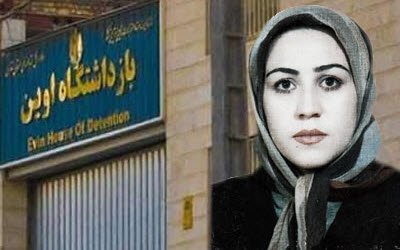
Mariam Akbari Munfarid and her eldest brother are serving their seventh year in prison. In the eighties, two of her brothers were executed for supporting “Mujahidin Khalq” Organization that is classified as a terrorist group by the Iranian regime. In 1988 another brother and sister were also executed. Now, Munfarid has made a formal complaint asking Tehran’s court to investigate the people and reasons behind the executions of her brothers and sister and the place of their burial.
Munfarid also asked the families of the victims of executions in the eighties to officially demand the release of indictment of trials of their relatives, and ask the Iranian officials to disclose the names and places of burial of those victims
In fact, Munfarid has suffered a lot of tragedies in her life. In 2009 after the protests of Ashura day, she was prosecuted and sentenced 15 years imprisonment by Judge Salavati on June 11, 2010, for charges of fighting the state by joining “Mujahidin Khalq” Organization. Although she denied these accusations many times, the judge responded with only one sentence, “You are taken by the guilt of your brothers and sisters.”
Iran Wire
♦ $60 million bribes from “Total” to an Iranian official

Head of Justice and Transparency Control Organization, Ahmed Tavakoli said that the international oil company “Total” had paid $60 million bribe to an Iranian official between 1995 and 2004. “This official has received $45 million between 1995 and 1997, and $15 million between 1997 and 2004,” Tavakoli said. “This information was published in the statements of the American Stock Exchange and Securities in 2013, but did not disclose the name of this Iranian official that was paid off; they only released his personal information precisely,” he added.
Finally, Tavakoli asserted that he could not disclose the name of this person because it is the job of the judiciary to collect information and bring him to court.
Arman Amroz Newspaper
♦ Ahmed Shahid: Iran is violating human rights
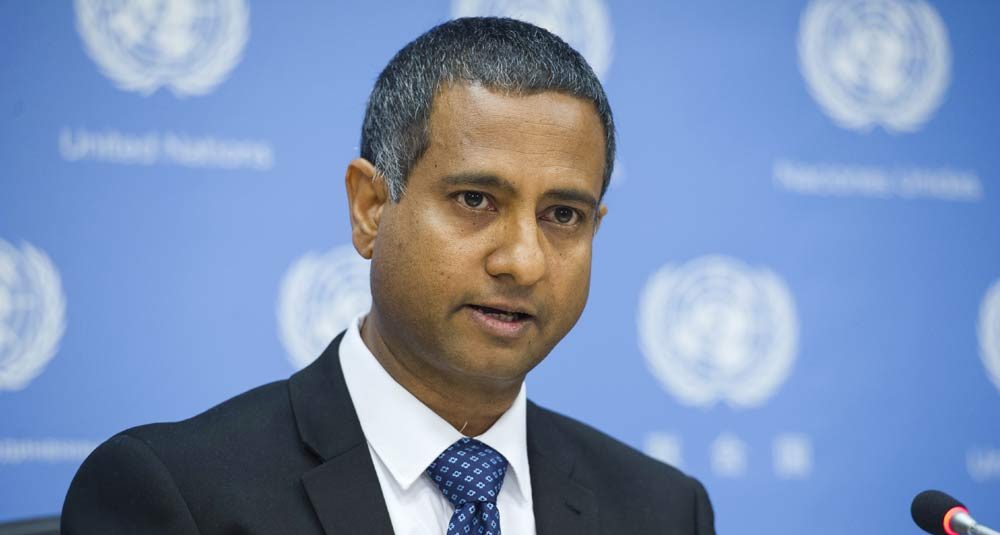
Human rights observer, Ahmed Shahid, is serving his last month in Iran. He published a report yesterday about the human rights violations in Iran saying, “Tehran has taken positive steps but is still violating human rights, especially the rights of minorities, journalists, and women, adding that people are deprived of freedom of speech, right to assemble, and right of a fair trial.
According to BBC, Shahid reported 23 times to the Iranian officials about human rights violations in Iran. He also criticized the increasing number of executions that reached 241 to 253 cases from the first of January until the third week of July 2016.
In his report, Shahid also pointed that the number of executions jumped to 40 cases during the first three weeks of July; most of them related to drug crimes. In 2015, 966 to 1054 execution cases occurred, which is considered the highest rate of executions in Iran during the last two decades.
On another issue, Shahid criticized the aggressive treatment and harsh punishments of legal and security organizations to journalists, activists, dual-nationals, laborers, social and political activists.
Fares agency
♦ No impact on the American presidential elections on the nuclear deal
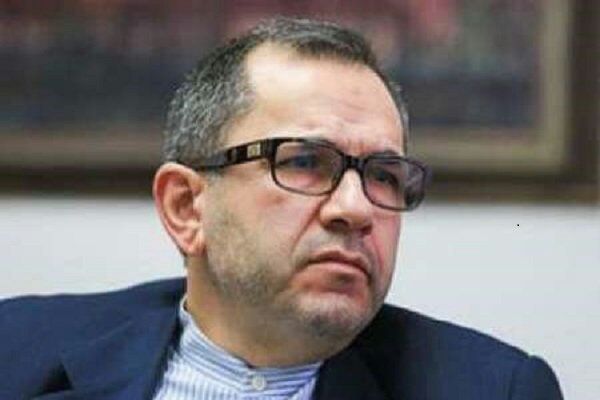
Deputy-Foreign Minister for American and European Affairs, Majid Takht Ravantchi said that the nuclear deal was negotiated with seven nations and cannot be repealed by a statement of one member. He added, “America is on the threshold of elections, and there are talks about Iran in the electoral campaigns, but these discussions do not have any impact on the American commitments to the nuclear deal, and we cannot accept any violations.” Ravantchi continued, “Iran does not care who the next American president is, but if violations continue, we will take this issue more seriously than before.”
In response to a question about the future of relations with Europe after the American elections, Ravantchi said, “This issue will have no impact on the European relations with Tehran because they are familiar with the Iranian capabilities and the benefits they would gain from their dealings with Iran.”
ISNA News Agency
♦ Minister of Justice: get dual-nationals out of the government
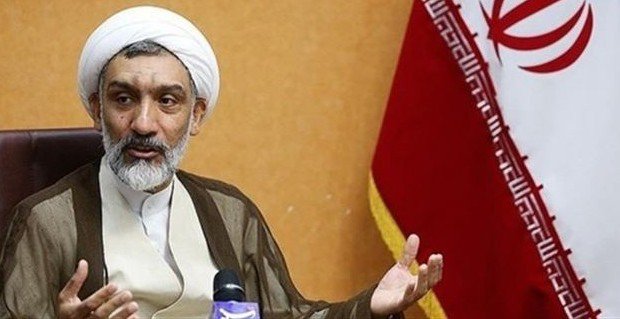
Iran’s Minister of Justice, Mustafa Bour Mohammedi demanded discharge of all dual-national officials in the government, asserting that his ministry will take all measures to disclose their names.
“Judiciary abides by the interests of the regime, and no one can implement his orders in this organization, asserting that the Western countries tried to do so, but failed because of the strong relationship and trust between the government and people,” he claimed.
Nameh News Website
♦ Ahmed Montazeri rejects charges of action against national security
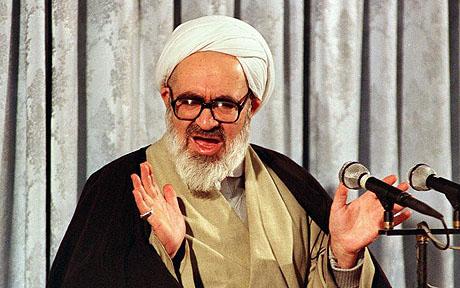
Former vice-leader, Hussein Ali Montazeri’s family announced that Ahmed Montazeri had attended the hearing in the clergy court, branch five in Qum concerning the release of the recordings of Montazeri that goes back to 1988. This private session was attended by neither Montazeri’s lawyer nor the Jury.
In the session, Attorney General Ansari Zadah read the indictment, calling to convict Ahmed Montazeri of acting against the national security under articles 498, 501, and 505 of the Iranian law that was rejected by Ahmed Montazeri.
On the other hand, some officials demanded not to disclose the minutes of meetings of the hearing session until the declaration of the court rule.
Damadim Website
♦ New details about the rule against 6 American spies in Iran
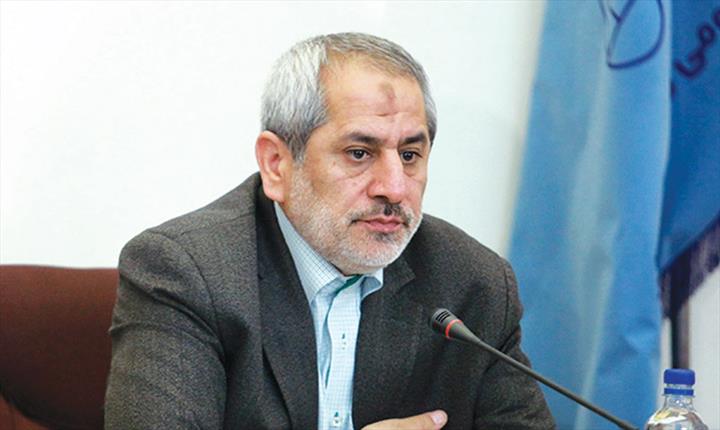
Tehran’s Prosecutor, Abbas Jafari Dawlat Abadi announced that the tribunal had ruled ten years imprisonment on Baqir Namazi, Siamic Namazi, Firhad Abidsaleh, Kamran Qadiri, Nizar Zaka, and Ali Riza Amidvar for espionage charges to the United States of America.
Earlier, the media reported that those individuals came to Iran a few months ago under the name of the so-called “The political-economic influence project” after the start of some operational, economic and university projects. Based on the court rule, they were obliged to pay the $4.8 million they received from Iran’s enemies to implement their plots to the treasury of Iran.
Raja News Agency
